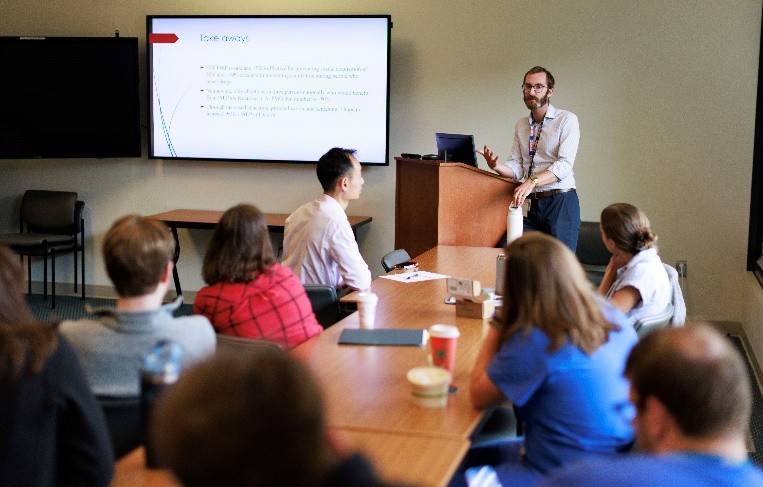
The curriculum at Providence St. Vincent Medical Center is designed to give residents broad exposure to the core areas of internal medicine. Our program offers a balanced experience across inpatient, outpatient, intensive care, and consultative medicine. With no competing residency programs on site, residents are able to take on meaningful clinical responsibilities in a supportive environment.
Our inpatient training emphasizes team-based bedside rounding and progressive responsibility, helping residents build the skills needed to lead hospitalist teams over time.
Residents also benefit from close collaboration with subspecialty faculty, often working one-on-one with academic mentors. In the ambulatory setting, our medical home model encourages continuity and ownership of patient care. Through these experiences, residents develop strong clinical, leadership, and communication skills that prepare them for a variety of career paths, including primary care, hospital medicine, and subspecialty training.
Schedule at a glance:
* there are 13 4-week blocks in the academic year.